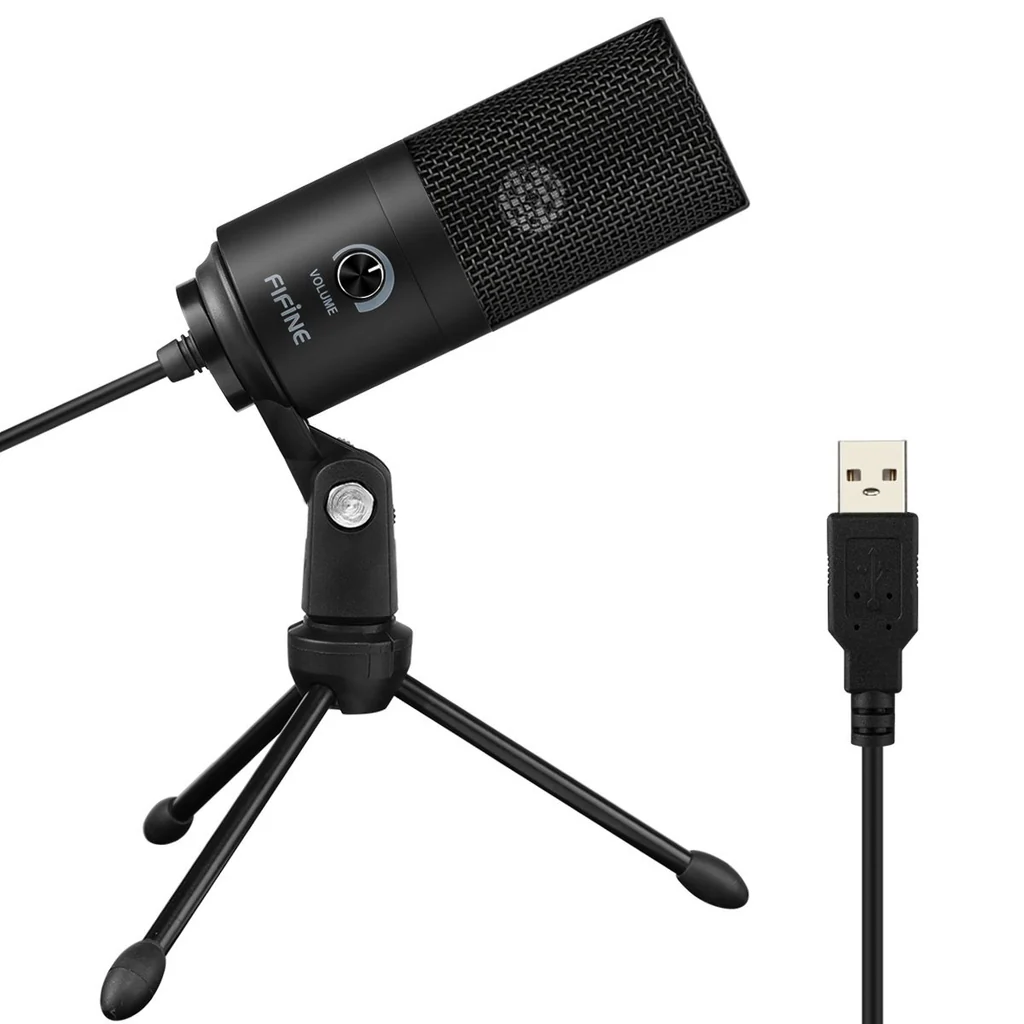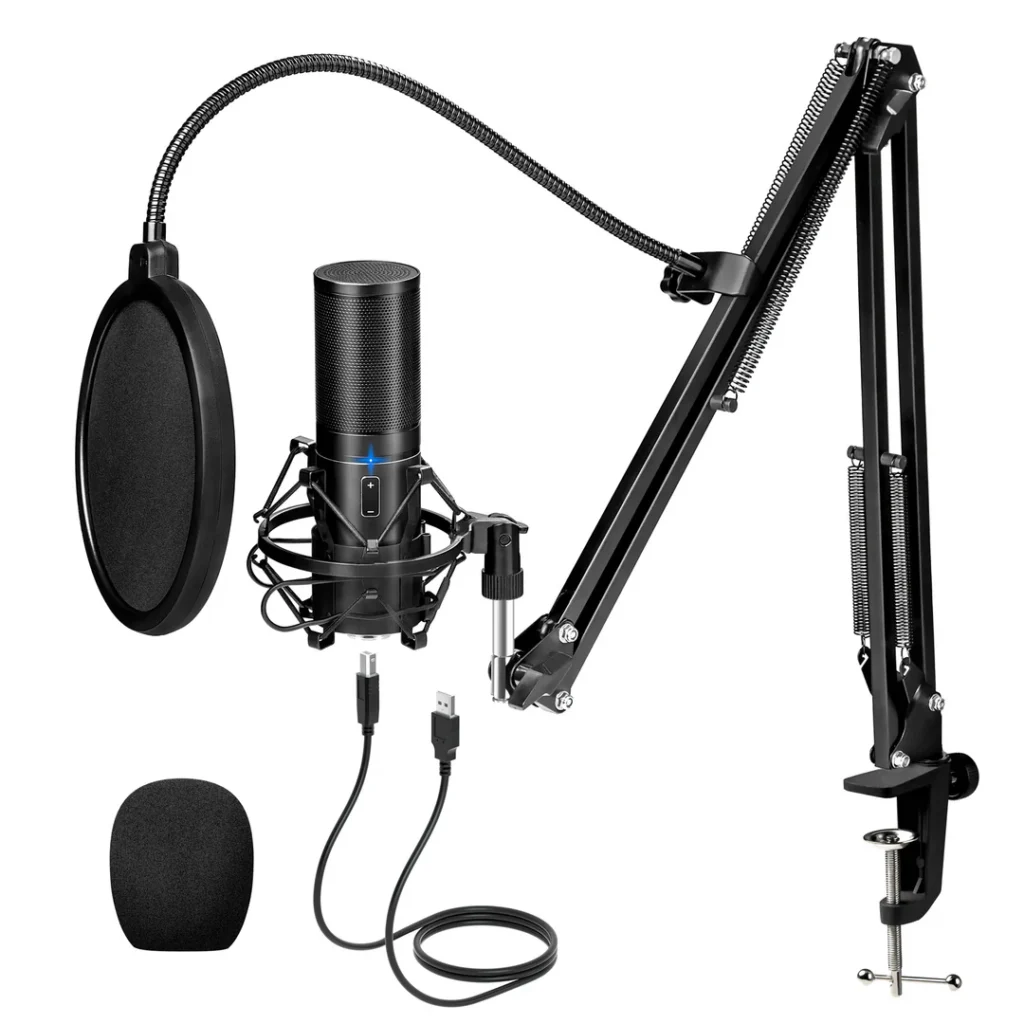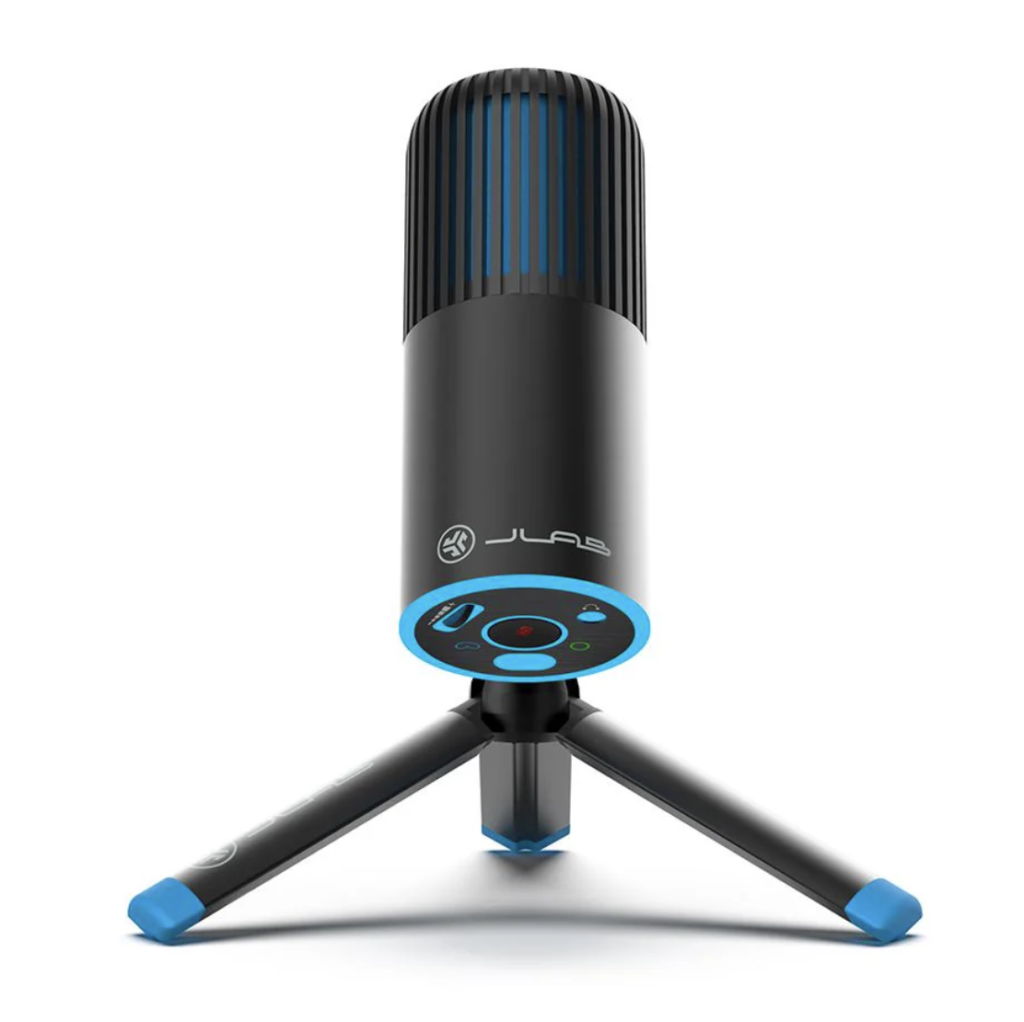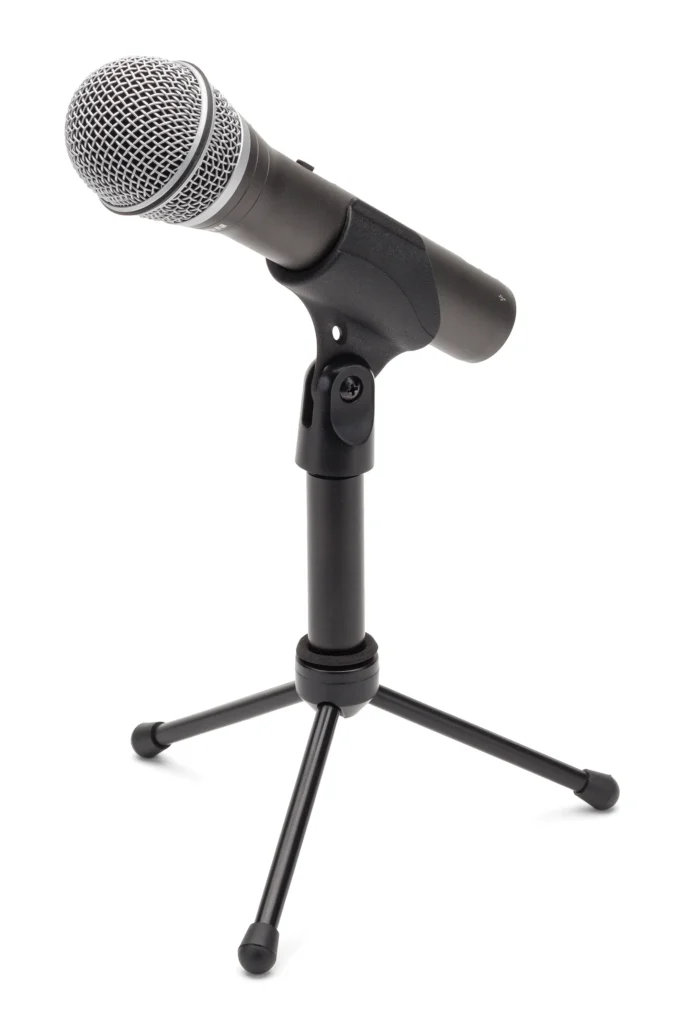You run a startup, and you’re building in public. You’ve got stories to tell about your journey. The wins and well… the lessons. Remember that time when you built your MVP over the weekend, launched it on Monday, and suddenly 1,000 people signed up, and your backend collapsed like a house of cards?
Your journey could inspire another founder, or better still, win your next investor. So you decide to hit record on your podcast mic, hoping to capture the authenticity of your journey. But when you listen back, it just doesn’t sound like the podcasts you admire on Spotify. It is flat, muffled, and has that weird sound that hurts your ears.
Does this sound familiar?
As a startup founder or owner, you are already stretched, and money is tight. But we have some good news for you. You don’t need a 400$ mic to sound professional and crisp. The market is full of quality, affordable mics. All that without destroying your runway.
In this article, we will walk you through 10 budget-friendly podcast microphones, organized from the most affordable to the priciest, so you can find the right one for your budget and goals.
Let’s start with why this matters.
Why Sound Quality Matters in Podcasting (Even If You’re Bootstrapping)
It’s simple. No one sticks around to hear a great story with bad audio.
You could have the best growth hacks, team-building lessons, or founder insights, but if your mic sounds like it’s in another room, your listeners will check out. The right mic builds trust. It says: “I care about quality, even on a startup budget.”
What to Look for in a Budget-Friendly Podcast Microphone
When evaluating your options, keep these factors in mind:
- Audio Quality: Clear, natural voice capture. Look for condenser mics if you’re in a quiet space.
- USB vs XLR: USB plugs straight into your laptop, great for solo founders. XLR is pro-grade but needs an interface.
- Durability: You’re probably recording from your living room or coworking space. You need gear that can travel and take a hit.
- Portability: Can you throw it in your backpack without worrying?
- Compatibility: Does it work with Windows, Mac, and podcasting tools you already use? Always check the product description for this.
- Budget Range: For this list, “budget-friendly” means under $150, with many great options under $100.
Now, let’s get into the best mics for founders launching their voice.
1. Fifine K669B – $35–$45

Best for solo founders starting out with zero setup hassle
This Fifine K66B mic often gets overlooked because of its low price, but don’t let that fool you. It punches way above its weight. The sound is clear, slightly warm, and forgiving in less-than-ideal environments (like echoey offices).
What’s great: It’s plug-and-play USB. No drivers. You’re recording in seconds.
What to consider: The stand is basic. You might want to upgrade to a boom arm for better mic placement and to reduce desk noise.
If you’re a founder dipping your toes into podcasting, this mic is a no-brainer.
2. Tonor Q9 – $50–$60 (with full kit)

Best for podcasters who want the “studio” feel
The Tonor Q9 doesn’t just come with a mic. You also get a shock mount, boom arm, and pop filter. That’s a lot of value in one box.
Why founders love it: It looks and feels like a pro setup, which is a nice confidence boost when you’re creating content to build your brand.
Minor downside: It’s a little large, and the mic sensitivity can pick up keyboard clicks, so placement matters.
If you’re planning to batch record content, this is a great setup right out of the box.
3. JLab Talk Go – $50–$70

Ideal for founders who need portability and clean sound
If you work remotely, travel often, or switch between locations, this JLab Talk Go Mic is a solid pick. It’s small, sleek, and super lightweight, perfect for startup nomads.
What stands out: Dual condenser mics and multiple recording modes for solo or interview-style setups.
Watch out for: It’s very sensitive, so background noise is more noticeable in noisy environments.
Great option for startup founders doing remote interviews or product updates from different cities.
4. Samson Q2U – $60–$80

Best for founders who want future flexibility (USB + XLR)
This Samson Q2U Mic is a favorite in the budget range for a reason. It gives you both USB and XLR connections. Start with USB now, and when you upgrade to a mixer or audio interface later, it’ll grow with you.
Why it’s reliable: Clean sound, minimal background noise, durable build.
Downside: The included stand is short and not ideal for most desk setups; budget a little extra for a boom arm.
If you’re serious about podcasting as a long-term channel for your startup, this mic gives you room to grow.
5. Blue Snowball iCE – $70–$80
Best for simple setup and solid performance
Blue has been around forever, and the Snowball iCE is their entry-level darling. It’s been used by thousands of creators to start their podcast journey.
Strengths: Sleek design, decent sound, easy USB plug-in.
Downside: It’s omnidirectional, so it picks up more room noise. Not great for busy offices or noisy apartments.
Still, if you’re recording in a quiet room and want something you can trust out of the box, this is a classic.
6. Maono PD100 – $70–$90
Best for founders who want a pro look and sound without complexity
This Maono mic has a very “radio” aesthetic and delivers sound to match. It’s especially good for voices, it gives a rich tone that’s rare at this price.
Strength: Dynamic mic = less background noise. Sturdy build. Looks sharp on camera.
Downside: No USB, this is XLR only. So you’ll need an interface like a Focusrite Scarlett to use it.
If you’re ready to sound like a pro and have the gear to support it, this mic holds its own.
7. Blue Yeti Nano – $90–$110
Best for founders recording solo + occasional guest interviews
The Yeti Nano strikes a nice balance: USB convenience with a richer sound profile than the cheaper options.
What’s excellent: Two recording modes: cardioid (solo) and omnidirectional (two-person interview). Quality audio with no fuss.
Watch out for: Sensitive to bumps and plosives (those harsh “P” sounds), so use a pop filter or speak slightly off-axis.
If your startup’s podcast is a key part of your content strategy, this mic makes you sound serious.
8. Audio-Technica ATR2100x – $100–$120
Best for high-quality sound with long-term reliability
This Audio Technica mic shows up on almost every “best budget mic” list, and for good reason. The audio is crisp, natural, and forgiving in imperfect recording spaces.
Founder-friendly features: USB and XLR, sturdy metal body, headphone jack for monitoring.
Heads-up: The best stand is not included again, so consider adding a boom arm to your setup.
If you’re doing regular interviews, AMAs, or product updates, this mic offers reliability and professional polish.
9. Elgato Wave:3 – $120–$140
Ideal for tech-savvy founders who like a little control
The Wave:3 Sounds great right out of the box, but what sets it apart is its software. You can route different audio sources (browser, mic, music) into a virtual mixer; a game changer if you stream or do multi-source recordings.
What’s amazing: Super low-latency, top-tier digital processing, sleek design.
Not ideal if: You’re not interested in tinkering with software. This mic shines when paired with its full software suite.
Founders who are into livestreaming or creating multimedia content will love the extra control.
10. Shure MV7 – $140–$160
The “splurge” pick that still counts as budget-friendly, for what it offers
This MV7 mic is modeled after the legendary Shure SM7 B (used by top podcasters), but it’s USB-compatible. That means you can plug in and go, but still sound like a pro.
What you’ll appreciate: Warm, broadcast-like tone. USB and XLR. Built-in touch controls. It’s one of the best mics under $200, hands down.
Why it’s worth it: If podcasting is central to your startup’s brand and you’re recording weekly, it’s a worthwhile investment.
Comparison Table
| Microphone | Price | Type | Best For |
| Fifine K669B | $35–$45 | USB | Solo startup podcasters |
| Tonor Q9 | $50–$60 | USB | Full setup with accessories |
| JLab Talk Go | $50–$70 | USB | Portable recording on the move |
| Samson Q2U | $60–$80 | USB/XLR | Beginners with growth in mind |
| Blue Snowball iCE | $70–$80 | USB | Quick setup in quiet spaces |
| Maono PD100 | $70–$90 | XLR | Pro look and sound (interface req) |
| Blue Yeti Nano | $90–$110 | USB | Solo + guest podcasting |
| ATR2100x | $100–$120 | USB/XLR | Consistent quality long-term |
| Elgato Wave:3 | $120–$140 | USB | Multi-source content creators |
| Shure MV7 | $140–$160 | USB/XLR | Founders going all-in on podcasting |
Final Tips for Choosing Your Mic
- Match it to your space. Quiet room? Go condenser. Noisy office? Go dynamic.
- Don’t forget accessories. A $10 pop filter or arm can massively improve audio.
- Think long-term. If podcasting is part of your founder brand, spend a little more now, it’ll pay off in listenability.
You Don’t Need a Big Budget to Sound Like a Big Deal
Podcasting can be a powerful channel for startup founders, sharing your voice, building community, even attracting investors. And yes, you can sound great without spending a fortune.
You could be recording solo updates, founder chats, or full-blown interviews, there’s a mic on this list for every budget stage.
Start with what you can afford. Upgrade when it makes sense. But never let bad audio get in the way of your big ideas.
FAQs
1. What is the best budget-friendly microphone for startup podcasting?
The Samson Q2U is a standout choice; it’s flexible, sounds great, and grows with you.
2. Are USB microphones good enough for podcasting?
Yes. Many top podcasters use USB mics. They’re plug-and-play and great for solo founders.
3. Can I use a gaming microphone for podcasting?
You can, but most gaming mics are tuned differently. For podcasting, voice clarity is key; get a mic built for spoken word.
4. Do I need an audio interface?
Only if you’re using an XLR mic like the Maono PD100 or want more control. USB mics don’t require one.

